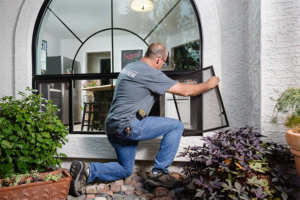Selecting the Right Epoxy for Quartz and Stone Surfaces: A Compatibility and Application Guide
Choosing the correct epoxy for bonding and finishing quartz and other stone surfaces is essential for ensuring both aesthetic appeal and long-term durability. This guide provides detailed insights into the various types of epoxies available, their specific properties, and application techniques to help you achieve the best results for your stone surface projects.
Understanding Epoxy and Its Importance
Epoxy resins are vital in stone fabrication for their ability to create strong, durable bonds and flawless finishes on stone surfaces. They are particularly crucial for quartz, which often requires a specialized adhesive to maintain its integrity and appearance.
Properties of High-Quality Epoxies
- Viscosity: Epoxy consistency can vary, affecting its spreadability and the ease of application.
- Cure Time: Different epoxies have different curing times, which can influence project timelines.
- Color: Some epoxies are formulated to match the stone’s color, helping to conceal joints and seams effectively.
Professionals looking for high-quality epoxies and related services can find valuable resources and materials at apex windows, which offers a range of products suited for various stone types and applications.
Types of Epoxies for Stone Surfaces
Selecting the right type of epoxy depends on the specific requirements of the stone surface, including the material’s sensitivity, the environment of the installation, and aesthetic considerations.
Key Types of Epoxies
- Epoxy Glues: Best for bonding stone slabs, tiles, or pieces.
- Epoxy Fillers: Used to fill cracks or chips in stone surfaces, often needing to be color-matched.
- Structural Epoxies: Designed for high-strength applications where support and load-bearing capabilities are needed.
Best Practices for Epoxy Application on Stone Surfaces
The successful application of epoxy not only enhances the stone’s appearance but also ensures its longevity and durability. Here are some tips to achieve the best results:
Application Techniques
- Surface Preparation: Ensure surfaces are clean, dry, and free of any debris or dust.
- Mixing Epoxy: Properly mix the resin and hardener components according to manufacturer instructions to ensure optimal performance.
- Applying Epoxy: Use appropriate tools such as spatulas or epoxy guns for application, and ensure thorough coverage.
For detailed assistance and repair services, particularly for window installations associated with stone surfaces, marvin window repair offers specialized support, ensuring that all aspects of your project meet high standards of quality and performance.
Advantages of Using the Right Epoxy
The benefits of choosing the correct epoxy for quartz and stone surfaces extend beyond mere adhesion.
Benefits Include:
- Enhanced Durability: Properly selected and applied epoxy can withstand environmental stresses, preventing degradation over time.
- Improved Aesthetics: Well-matched epoxies enhance the stone’s natural beauty, making seams virtually invisible.
- Increased Structural Integrity: Epoxies contribute to the overall stability of the stone installation, supporting its weight and use.
By understanding the properties of different epoxies and following best practices for application, you can ensure that your stone installations are not only visually pleasing but also structurally sound and durable. Whether you are working on a residential kitchen counter or a commercial flooring project, the right epoxy can make all the difference in the success of your installation. For further information on epoxies or for specific product needs, apex windows and marvin window repair provide excellent resources and expert services tailored to your project requirements.






